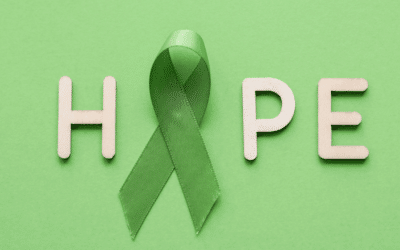A shocking 76% of U.S. workers say they experienced burnout in 2023.
Life gets crazy with endless meetings, deadlines breathing down your neck, and constant emergencies. Making time for self-care feels like a distant dream. Trust me – busy professionals like us barely catch a breath with our daily responsibilities.
The struggle hits first responders even harder. They deal with random schedules and high-stress situations while carrying the burden of other people’s emergencies. Self-care becomes an afterthought. But let’s be real: self-care isn’t some fancy extra – it keeps you going in these demanding jobs.
My work takes me around the country giving talks and juggling a packed schedule. Experience taught me that good self-care doesn’t need huge time blocks. Two minutes can change how you feel and boost your well-being.
This article offers practical self-care strategies that work for busy professionals and first responders. You’ll learn everything from quick stress-relief techniques to creating sustainable self-care habits. We’ll help you put yourself first without dropping the ball at work.
Essential Self-Care Framework for High-Stress Careers
My experience as a mental health speaker nationwide has taught me something valuable: self-care isn’t about long spa days or weekend retreats. People in high-stress careers need to focus on small moments that make a big difference.
Defining Self-Care for First Responders
My work with first responders has shown that traditional self-care advice rarely matches their reality. Self-care for first responders means practical ways to recharge between calls, during shifts, and in precious moments of downtime. These “micro-moments” serve as brief windows where you can reset your mental and physical state.
The key components of first responder self-care include:
- Physical Reset: Quick breathing exercises between calls
- Mental Check-ins: Two-minute mindfulness during shift changes
- Emotional Release: Brief journaling after challenging situations
- Social Connection: Short check-ins with trusted colleagues
Creating a Personalized Self-Care Plan
My hectic schedule has taught me that the best self-care plan is one you’ll actually follow. My two-minute self-care techniques help me maintain balance while flying between four cities weekly for presentations. These aren’t quick fixes – they’re strategic pause points that help maintain balance during intense periods.
Your daily pressure points need identification first. My pressure points usually hit right before presentations or after long flights. Specific two-minute activities should be assigned to these moments. Deep breathing exercises in your patrol car or stretching between emergency calls could work well.
Building Professional Resilience
Small, consistent actions build professional resilience. The “compound effect” of mini self-care practices has proven to work best. These small investments in your well-being grow over time, similar to compound interest growing your savings.
My workshops nationwide reflect what I teach. You’ll find me taking two-minute walks, doing quick grounding exercises, or practicing mindful breathing between sessions. These activities serve as building blocks of professional endurance.
Note that resilience in high-stress careers isn’t about being unbreakable – it’s about becoming more flexible and adaptable. Our “stress immunity” grows stronger through consistent practice of these brief self-care moments, which gives us the tools to handle future challenges effectively.
Emergency Response Self-Care
My speaking engagements about mental health throughout the country have taught me something important – crisis moments never come with a warning. This realization led me to develop the “Crisis Care Triangle” – a three-phase approach that helps me stay balanced during tough times.
Pre-Crisis Preparation
The best time to prepare for a storm is when the sky is clear – that’s what I tell everyone in my workshops. Dealing with high-pressure situations often, I’ve put together a Pre-Crisis Checklist you can review in two minutes:
- Identify your personal stress triggers
- Establish your go-to grounding technique
- Keep emergency contacts readily available
- Create a playlist of calming music
- Designate a quiet space or “reset zone”
During-Crisis Coping Strategies
My “Quick Reset Matrix” comes in handy when I’m giving a demanding presentation or facing a tough situation:
| Time Available | Physical Strategy | Mental Strategy |
|---|---|---|
| 30 seconds | Deep belly breathing | Focus on feet touching ground |
| 1 minute | Shoulder rolls | Count backward from 20 |
| 2 minutes | Walk in place | Visualize peaceful scene |
Post-Crisis Recovery Techniques
Experience has taught me that recovery isn’t optional after intense speaking engagements – it’s essential. My two-minute recovery routine follows what I call the “Three R’s”: Release, Reflect, and Reset.
Simple stretches help me release physical tension. I reflect by asking myself three quick questions: “What am I feeling right now?”, “Where is this feeling located in my body?”, and “What do I need at this moment?” Several deep breaths while grounding myself help me reset.
These techniques aren’t just theory – they’re my daily companions during cross-country speaking tours. Running between airports, hotels, and presentation venues, these two-minute self-care practices keep me anchored. They work in real-life applications, whether you’re juggling multiple projects or handling emergency situations.
Making these strategies work isn’t about having more time – it’s about using your available time well. That’s why these exact techniques are part of our two-minute self-care courses at Mike Veny Inc. Effective self-care should fit into anyone’s schedule, no matter how busy.
Physical Self-Care for Demanding Roles
Life as a mental health speaker keeps me constantly moving, and I’ve become skilled at physical self-care in challenging environments. Red-eye flights and back-to-back presentations fill my schedule, but I’ve found that physical well-being doesn’t need hours at the gym or complex meal prep.
Quick Physical Relief Exercises
The “Two-Minute Power Reset” works wonders for me – a series of exercises you can do anywhere. My go-to routine between presentations or at the airport looks like this:
| Time | Exercise | Benefit |
|---|---|---|
| 30 seconds | Shoulder rolls and neck stretches | Releases tension |
| 30 seconds | Standing twists | Improves circulation |
| 30 seconds | Deep knee bends | Energizes legs |
| 30 seconds | Wrist and ankle rotations | Prevents stiffness |
Nutrition for High-Stress Environments
My cross-country speaking tours taught me that nutrition isn’t about perfect meals – it’s about strategic fueling. My “Stress-Proof Eating Strategy” has these key elements:
- Keep protein-rich snacks in your work bag (I always carry nuts and protein bars)
- Front-load your day with a substantial breakfast
- Stay hydrated – I mark specific times on my calendar for water breaks
- Choose foods that stabilize energy (complex carbs and lean proteins)
Managing Sleep with Irregular Schedules
Crossing time zones for presentations pushed me to get creative with sleep management. I practice “Sleep Anchoring” – setting up consistent sleep triggers whatever my location or schedule.
My two-minute self-care courses at Mike Veny Inc. emphasize that quality sleep starts with small habits. A portable sleep kit serves me well – it has earplugs, an eye mask, and a travel-sized white noise machine. These familiar elements tell my body it’s time to rest, even in different hotel rooms.
The “2-2-2 Rule” stands out as one of my best findings: two minutes to set up your sleep environment, two minutes for gentle stretching, and two minutes for deep breathing. This simple routine helps me maintain good sleep quality despite my irregular schedule.
Physical self-care isn’t about perfection – small, consistent actions matter more. My extensive travel and speaking work showed me that these brief but purposeful practices make a real difference in keeping energy and resilience high in demanding roles.
Mental Health Maintenance
My trip as a mental health speaker has taught me that mental health isn’t just about managing stress. It’s about understanding and responding to our deeper emotional needs. Let me share what I’ve found about making mental health maintenance practical and available, even with a packed schedule.
Trauma-Informed Self-Care Practices
My work with first responders and busy professionals led me to develop the “Mindful Moment Method“. This approach recognizes that trauma can surface without warning, even during a hectic workday. I use this method between speaking engagements and take two-minute windows to check in with my body and mind.
Here’s my personal trauma-informed self-care routine that takes just minutes:
- Body scan while waiting for meetings to start
- Grounding exercises between tasks
- Quick breathing reset after challenging interactions
- Mindful movement during brief breaks
Emotional Processing Techniques
My experience with a demanding travel schedule helped me refine emotional processing into what I call the “Feel-Locate-Release” technique:
| Step | Action | Time |
|---|---|---|
| Feel | Identify current emotion | 40 seconds |
| Locate | Find where it sits in your body | 40 seconds |
| Release | Use targeted breathing | 40 seconds |
This technique is the life-blood of our two-minute self-care courses at Mike Veny Inc. It helps busy professionals process emotions quickly without disrupting their workday.
Professional Support Resources
The sort of thing I love about being a mental health speaker is that I just need professional support. It’s like having a spotter at the gym – someone to check your form and ensure you’re not taking on too much. My extensive travel and speaking engagements helped me find effective ways to keep professional support:
Virtual Support Network:
- Online therapy platforms for flexible scheduling
- Professional peer support groups
- Mental health apps with licensed counselors
- Crisis hotline numbers saved in your phone
I schedule brief check-ins with my therapist between speaking tours and often use video calls. This consistent professional connection helps me stay resilient and maintain my point of view, even during my busiest periods.
Note that these practices aren’t just theory – they’ve been tested through countless presentations, flights, and high-pressure situations. I teach our two-minute self-care courses and emphasize that mental health maintenance isn’t about finding more time. It’s about making the most of the time you have.
Building a Supportive Work Environment
Creating a supportive workplace environment goes beyond policies—it’s about people. My nationwide speaking tours have shown that organizations with strong support systems handle stress better and keep morale high. Let me share what I’ve learned about building these vital support networks.
Peer Support Systems
My work with first responders and busy professionals led me to develop the “Circle of Support” framework. At Mike Veny Inc., our two-minute self-care courses emphasize that peer support fits into any schedule.
Here’s my tested peer support structure that needs minimal time:
- Create buddy check-in systems (2-minute daily check-ins)
- Establish peer mentoring pairs
- Form small support groups (4-5 people maximum)
- Set up virtual chat channels for immediate support
- Schedule monthly peer recognition sessions
Communication with Supervisors
My experience shows that supervisor communication works best with the “CLEAR Communication Matrix”:
| Component | Action | Time Investment |
|---|---|---|
| Concise | State main point first | 30 seconds |
| Listen | Active listening practice | 30 seconds |
| Express | Share feelings professionally | 30 seconds |
| Ask | Request specific support | 15 seconds |
| Reflect | Summarize next steps | 15 seconds |
My speaking engagements often highlight how this matrix helped me balance my busy schedule while keeping open communication with my team.
Creating a Culture of Self-Care
A self-care culture grows through small, consistent actions. Between city presentations, I practice what I call “Micro-Culture Building“. These tiny actions reshape the scene through repetition.
To cite an instance, see how I start each team meeting with a two-minute wellness check-in. This simple practice changed my team’s approach to self-care. We now include it in our two-minute self-care courses.
My experience shows that culture change happens through the “Three R’s of Cultural Transformation”:
- Recognition of self-care efforts
- Reinforcement through regular practice
- Reward systems for maintaining boundaries
These strategies take time to show results in your workplace. My journey of managing self-care during busy speaking tours taught me that these practices become part of your organization gradually.
Start small. Workshop participants begin with just one two-minute practice. A brief morning check-in with your team or a quick mindfulness moment before meetings can work wonders. These small steps build the foundations for a more supportive work environment steadily.
Conclusion
Self-care doesn’t need hours of free time or complex routines. My extensive experience from traveling and speaking nationwide shows that even two-minute practices can bring real positive changes to your well-being.
Quick, consistent actions make a difference. Brief breathing exercises between meetings or short mindfulness moments during shift changes help build lasting resilience. These tiny moments of self-care have helped me stay balanced while handling packed schedules and nationwide presentations.
Want to begin your own self-care trip? Try our 2-minute self-care courses created just for busy professionals and first responders.
Note that self-care isn’t a luxury – it’s vital to your professional success and personal well-being. Start with just two minutes today and trust the process. These small investments will boost your resilience and energy as time goes by.



